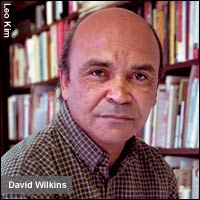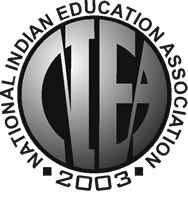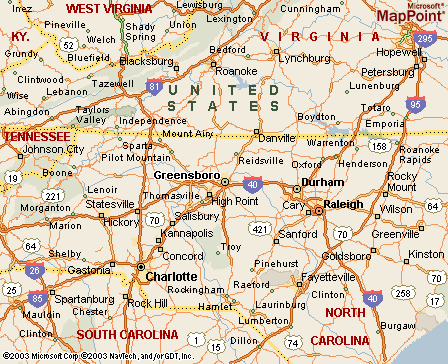|
|
Canku Ota |
|
|
(Many Paths) |
||
|
An Online Newsletter Celebrating Native America |
||
|
November 29, 2003 - Issue 101 |
||
|
|
||
|
Return to Traditions by Teaching Our History |
||
|
by Jim Largo Indian
Country Today
|
||
|
David Wilkins, professor at the University of Minnesota (and Indian Country Today guest columnist), explained during a keynote address that Native educators need to get away from coerced education and implement a more liberal but traditional instruction for Indian children. "It is about respecting the autonomy of each single human child and trusting that child with the right to choose and study those subjects that he or she is most hungry to learn," Wilkins said. "I am convinced that our tribal ancestors understood this intuitively and worked with it institutionally." Looking back at his own childhood, Wilkins noted that he went to a military school as a youngster. "I got my early schooling in a very strict military school," he said. "I later went to public school in Robeson County, ninth grade through high school at a largely segregated Indian school." Wilkins said his wife, Evelyn, who is Navajo, "was practically raised in a much harsher and more coercive indoctrinating world of federal Indian boarding schools on the Navajo Reservation, where if you were caught speaking Navajo, you got a severe beating and other forms of corporeal and emotional, psychological, spiritual terror and abuse, usually inflicted by other Navajos who were following federal rules and regulations." He felt that children in the U.S. have the worse status of all people living in the country. "There is an alarming high number of poverty among young people," he said. They live in "poor housing, inadequate health care, substandard schools, and high levels of crime." Wilkins who is co-authoring a book with Vine Deloria Jr., a Native scholar, historian and author, mentioned that he read hundreds of court cases for his research. "I have been left quite disturbed." Other conclusion he has drawn from his research are the following:
The federal government treats American Indians like parents treat their children, Wilkins said. There is hope, he explained, where children have gained some rights in the last few decades. "They still retain the status that makes it difficult for them to protect themselves from the very forces whether it be the media, local, state, tribal or federal governments, or parents, or teachers." He said, "Each child should have the fundamental right, a constitutional right, whether it's a tribal constitutional right, federal or state constitutional right. It's time we made our constitutions have our children's rights in them so they can engage in those experiences that he or she is most anxious to explore, because it is having the right to choose that is truly indigenous to the democratic concept." Wilkins explained that American Indian ancestors allowed children to develop without coercion, and often children have lead tribes to survive. "Survival of our nations depended on our children's activities, skills, knowledge and acts of bravery. "There is a time in each of our nation's history, where strength, innocence, vitality, and knowledge of children and young people played a crucial role in our very integrity, surviving." Wilkins said that before the federal schools, Natives respected their youth and taught them by example. His research revealed some definitions of education, he said. One of them is "building a series of experiences that is specifically tailored to the needs and interests and desires of each child." Another is "education is the whole system of human learning within and without school walls, which molds and develops human personality. It's all about the development of each individual child's unique personality. Fitness for the world. That's it. "I am convinced that if we look deep into our respectful tribal pasts, we can identify those ideas, values, instructions, and institutions that enable our culture to thrive. "Equally important, I believe, is that we as parents, as teachers or staff, whatever level, must look deep into each of our children's eyes and souls and ask them what it is they want to learn. "We must return to the level of trust our ancestors had with their children. "Indian children can lay out an appropriate agenda for what they desire that will make education and learning exciting process and experience that it should be. "Let us boldly implement what our ancestor practiced and take the time to bring forth the knowledge, values, ceremonies, social and political institutions that bring out the spirit of every human child, no matter what age." |
|
|
www.expedia.com |
|
|
||
|
|
||
| Canku Ota is a free Newsletter celebrating Native America, its traditions and accomplishments . We do not provide subscriber or visitor names to anyone. Some articles presented in Canku Ota may contain copyright material. We have received appropriate permissions for republishing any articles. Material appearing here is distributed without profit or monetary gain to those who have expressed an interest. This is in accordance with Title 17 U.S.C. Section 107. | ||
|
Canku Ota is a copyright © 2000, 2001, 2002, 2003 of Vicki Lockard and Paul Barry. |
||
 |
 |
|
|
The "Canku Ota - A Newsletter Celebrating Native America" web site and its design is the |
||
|
Copyright © 1999, 2000, 2001, 2002, 2003 of Paul C. Barry. |
||
|
All Rights Reserved. |
||
 GREENSBORO,
N.C. - A Lumbee college professor called on Native educators at
the National Indian Education Association convention here to return
to tribal tradition in educating Native children and youth.
GREENSBORO,
N.C. - A Lumbee college professor called on Native educators at
the National Indian Education Association convention here to return
to tribal tradition in educating Native children and youth.
 Wilkins
explained, "In short all children, including Indian children, face
perpetual physical, socio-economic conditions that leave them more
vulnerable to the societal and parental powers more than any other
group in our nation or the world for that matter."
Wilkins
explained, "In short all children, including Indian children, face
perpetual physical, socio-economic conditions that leave them more
vulnerable to the societal and parental powers more than any other
group in our nation or the world for that matter."